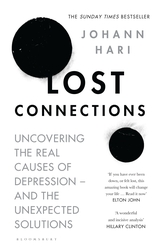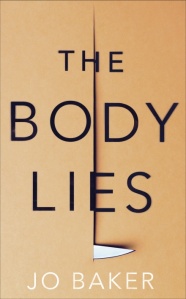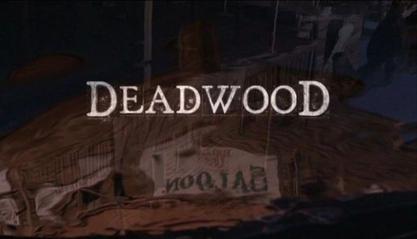 ‘Let’s address the elephant in the room,’ the neuroscientist Dean Burnett wrote last year, reviewing Lost Connections.
‘Let’s address the elephant in the room,’ the neuroscientist Dean Burnett wrote last year, reviewing Lost Connections.
Johann Hari does not have a flawless reputation. He has been absent from the spotlight for many years following a plagiarism scandal, compounded by less-than-dignified behaviour towards his critics. Admittedly, he has since shown remorse and contrition over the whole affair, but even a cursory glance online reveals he’s a long way from universal forgiveness. Logically, someone with a reputation for making false claims should be the last person making high-profile, controversial, sweeping statements about something as sensitive as mental health. And yet, here we are.
I was astounded by the scandal. I didn’t see it coming. I loved Hari’s writing. You will find pages in this blog where I quote him approvingly and rave about his work. I met him once at a panel event in Manchester. I shook his hand and gushed like a helpless fanboy.
These days I’m older and more cynical, I was certainly sceptical about Lost Connections when it was first published last year. The book was an international bestseller. The paperback edition has four pages of praise, including from Emma Thompson, Brian Eno and Alastair Campbell. I was sceptical about the marketing and extracts from the book. People have gone through Lost Connections and stress tested Hari’s claims. I am not going to drill down here, you can follow the links in Burnett’s article for that kind of critique. Nor do I want to go over Hari’s past misbehaviour, this is well documented, some people have forgiven and forgotten, others have not, I respect their feelings in both cases. I think that whatever else he lied about, Hari told the truth about his own clinical depression. The demons that haunt him are real. So when I saw the paperback edition of Lost Connections on the supermarket rack I picked it up, out of curiosity, and from a desire to give him a fair hearing, as a brother in recovery.
Lost Connections is a book about mental health. In it Hari makes several carefully crafted assertions.
- Too many people are taking antidepressants. These are the only real option in mental health treatment.
- This is because the medical establishment thinks of depression as purely a neurological problem. In fact depression has mostly social and environmental causes. The biochemical causes for mental illness are hugely exaggerated. They might not even exist.
- Antidepressants provide some temporary relief for a minority of users. But they carry side effects and are likely to give only superficial benefits. They may even make you worse.
- Doctors only prescribe antidepressants because the medical establishment has been irredeemably compromised by big pharma. Big pharma companies set the terms of the debate and game chemical trails to make their products look more effective than they really are.
- A lot of anxiety and depression is caused by the impact of living in an urbanised neoliberal society where we are bombarded with advertisements that raise unrealistic expectations of how we should be living. People are conditioned to want more and more stuff and to look totally perfect and get rich and it’s the difficulty of living up to these expectations that makes us sick.
- The neoliberal model compounds this because it takes the meaning out of our work and makes us feel like we have no control over our own lives. Social media makes us more isolated because we are stuck behind screens rather than being part of real life, meaningful communities.
- There are loads of different treatments and ways of living that can cure anxiety and depression but the medical establishment won’t explore these because there’s not the money in these alternative treatments as there is in big pharma.
There is truth in some of these assertions. But in Hari’s book there is always the sense that you are not being told the whole truth. Disingenuousness sparkles across his pages like mica.
There are problems with prescribing. There is no doubt that drug companies have ruined lives. In America entire communities have been destroyed by overprescribing of opioid medications, that have been pushed onto clinics by aggressive marketing strategies. Opioids kill more people than AIDS in the 1980s. Thousands and thousands of people have died of overdose – mainly the young, and the white working class. It is a modern Vietnam. There are parts of Appalachia where people will cash in Gramps’s life insurance and the kids’ college fund to buy pills. There were clinics where the doctors carry guns. The problem is way beyond the scope of this blogpost. I would recommend Beth Macy‘s Dopesick and Chris McGreal‘s American Overdose, both outstanding works of longform journalism. Can’t happen here, right? Don’t be so sure. McGreal says that opioid related deaths have more than doubled in England and Wales since 2012.
But fine, let’s talk about SSRIs.
There are problems with treatment. The number one cause of death for working age people in the UK is suicide. Many sufferers in the UK have no access to effective mental health care at all. They will also be discriminated against in other areas of life – try getting insurance with a known mental health problem, for example. It is difficult to get in front of a psychiatrist in the UK because the state has little interest in training skilled professionals or supporting them on the frontline. It’s also hard to get inpatient treatment unless you’re completely off the reservation and even if you are admitted you might not be safe. That’s not anyone’s fault in particular, clinicians in the NHS work incredibly hard under very difficult conditions, but talented people can only do so much.
If you seek help the first thing that happens is triage. MH professionals will ask you to fill in the PHQ9 with priority being the question that asks how likely you are to kill yourself. If you’re particularly high risk the MH professional will then go through your protective factors. What is it keeping you alive? You say something like ‘I have these thoughts of ending my life but I would never go through with it because my wife and kids would be devastated.’ I understand why professionals focus on protective factors but I think this approach compounds the problem in many people because it adds a sense of guilt and obligation to what is already going to be a volatile mix of emotions. Throw too much into that mix in someone’s head and sooner or later the tornado’s going to descend. Some people don’t come out of the tornado.
But fine, let’s talk about SSRIs. This is where Hari’s assumptions begin to fall apart. Hari took antidepressants since his teenage years. He writes several times that he researched this book with a mindset that SSRIs work and that he only reluctantly changed his mind after talking to sceptical practitioners and people from different walks of life. I’m afraid I personally don’t believe him on that point, I think he wrote Lost Connections based on the assumptions I listed at the beginning of this post.
Here is Hari’s problem. Practitioners already know that a lot of people are anxious and depressed because they lead sad and difficult lives. A couple of months before his book came out, a Financial Times reporter, Sarah O’Connor, visited Blackpool in the UK. Blackpool has some of the highest prescription rates in the country. O’Connor spoke to local GPs about the problem.
Doctors in places such as this have a private diagnosis for what ails some of their patients: ‘Shit Life Syndrome’. [Dr] Rajpura laughs when I mention it. ‘Yeah, I’ve heard that from GPs in Blackpool.’ The term isn’t meant to sound dismissive. People with SLS really do have mental or physical health problems, doctors say. But they believe the causes are a tangled mix of economic, social and emotional problems that they — with 10- to 15-minute slots per patient — feel powerless to fix.
As Burnett says:
Personally, I’d always assumed the role of life events was widely accepted, and has been for decades. In psychiatry/medicine/psychology, this is often known as the Biopsychosocial model, and any decent professional will be very aware of it. Far from being a revelation of Hari’s, it was mooted back in the 70s, and has been part of standard teaching for at least 20 years.
Hari even visits a GP practice in his part of London that has pioneered a ‘social prescribing’ approach where long term patients get together, get to know each other and work to improve the local environment. This stuff works, and Hari could have visited a dozen other GP practices with in house social prescribers who offer 60-minute appointments and can help with housing and financial issues. There is loads that can be done even in hard times but often you’re back to the ten minute triage consult with the GP trying to figure out – is this person going to kill himself and can I stop him? Medicine’s job is to keep you alive and functional. It’s not to unravel the trauma in your soul or give you the secret to eternal happiness – which doesn’t exist, for we’re wired for survival rather than contentment. The NHS struggles even to keep elderly people alive through a hard winter. Medicine’s job is to keep you upright and breathing air. Nothing loftier should be demanded of it.
When I was last in therapy in 2016 my psychologist told me that there are two ways to undergo psychotherapy. You can take a quick fix, fine-tune your mind a little bit and then leave. Or you can deep dive into yourself and find out what it is that’s at the heart of your sickness. There is absolutely no shame, the psychologist told me, in taking option one. Bear in mind that if you’re in front of a therapist you will likely have been triaged and you’re likely at absolute rock bottom. It might have been an epic struggle just to leave the house to get to the appointment. There is no disgrace in taking the easy option of a few sessions to get you functional and working again. It’s okay not to open some doors.
What I want to say is that there are limits to the social model as well as the biochemical model. Imagine you go to the doctor’s again, except instead of GPs, the practice is run by a team of social scientists. If you’re poor and unemployed the social scientist might say: ‘Oh dear, it looks like you have mental illness caused by being a victim of capitalist individualism. Nothing to be done, I’m afraid, we’re stuck with it.’ If you’re an investment banker, the social scientist might say: ‘Oh dear, it looks like you have mental illness caused by becoming too successful in our neoliberal world and therefore you’ve cut yourself off from meaningful experience. No amount of worldly riches will heal your compromised soul. Try zumba classes or something.’
I’m simplifying, but I do feel there are limitations to exploring the social and environmental model of mental distress. It can make you feel helpless, and there is a darker current to thinking of problems in terms of entrenched and powerful systems, as the Trump and Brexit movements have proved. Hari concentrates on diseases of affluence such as obesity and social media burnout but I think in the near future these will give way to the more traditional diseases of want. I think the overavailability of SSRIs is going to be the least of our worries. If you liked neoliberalism, you’ll love nativism.
The very heavy focus on social issues leads Hari into some strange places. He interviews a woman in Arizona who lost her baby during labour. Hari says that the DSM has something called a ‘grief exception’ in which patients can show all the symptoms of depression but not be diagnosed. Then he says the grief exception was dropped in the DSM 2015 version. ‘So now if your baby dies and you go to the doctor the next day and you’re in extreme distress, ‘you can be diagnosed immediately,’ Joanne explained to me.’
Er, I’m not sure. There is always a sense in this book that Hari has not really thought through what he’s saying or really challenged himself with it. He discusses a study at the University of Essex that ‘tracked the mental health of people of more than five thousand households over three years. They wanted to look at two types of household in particular – people who moved from a leafy green rural area to a city, and people who moved from a city to a leafy green rural area.’ And, quelle surprise: ‘the people who moved to green areas saw a big reduction in depression, and the people who moved away from green areas saw a big increase in depression.’ We get depressed when we are cut off from nature.
No doubt that’s true, and well worth mentioning. But you can look at it from another angle. Young people who grow up in the rural leafy green area may be depressed because they don’t fit in to what could be a conservative small community. They will only get better if they move to a cosmopolitan city or somewhere where they feel they can be themselves. Lost Connections has loads of things like this. A month after publication of Hari’s book, the Lancet released a study that claimed that antidepressants were effective in treating major disorders. I don’t know if Hari discussed this on his website or social media at the time but a paperback afterword would have been the ideal opportunity to hit back against his critics and catch up with his interviewees. There’s no afterword. It is a curious omission.
I should declare an interest in all this. I have no clinical or scientific background. I have been fighting mental illness for fifteen years and been on SSRIs for at least ten of those. I’ve been in the tornado. I’ve been sectioned. I am technically disabled under the Equality Act (at least according to an occupational health report I once had). I get anxiety attacks that place significant limitations on what I can do. I can’t get in a moving vehicle. I can’t travel. I walk down to my local cafe bar, a place I’ve been a thousand times, and I’m sitting there with a pot of tea and the newspapers and suddenly I can’t breathe. Why?
I can’t complain though, I do not have ‘shit life syndrome’, I am privileged really, but I’m still getting these attacks. One of the reasons I was curious about Hari’s book was that I’m of the same generation as him and it was interesting to compare our different journeys through life and how we dealt with these significant problems. Hari’s book contains many inspiring moments and genuine psychological insight, and I’ve often thought that despite everything he would have made a good therapist. His chapters on the Berlin rent strike and the Baltimore bike co op are worth reading. So despite everything, I would recommend Lost Connections – with caution, and due diligence, and a small bucket of salt – but first I would recommend other mental health writers, like Emily Reynolds, and Bryony Gordon, and Sara Benincasa, and Elizabeth Wurtzel, and William Styron. I would also strongly advise to think long and hard, and consult a doctor, if you are thinking about stopping your meds.
One thing my therapist suggested to me was to imagine myself with a team of bodyguards who could talk me down from panic attacks. She advised me to make a list of five or six people. They could be people from real life, or fictional characters, or celebrities. The first bodyguard I thought of was Mike Ehrmantraut from Breaking Bad and Better Call Saul. It sounds ridiculous when I write it down, but often now when I’m crossing a busy road and feel an attack coming on, I imagine Mike Ehrmantraut standing next to me, and he says: ‘Relax, kid. You’re on the home stretch.’






